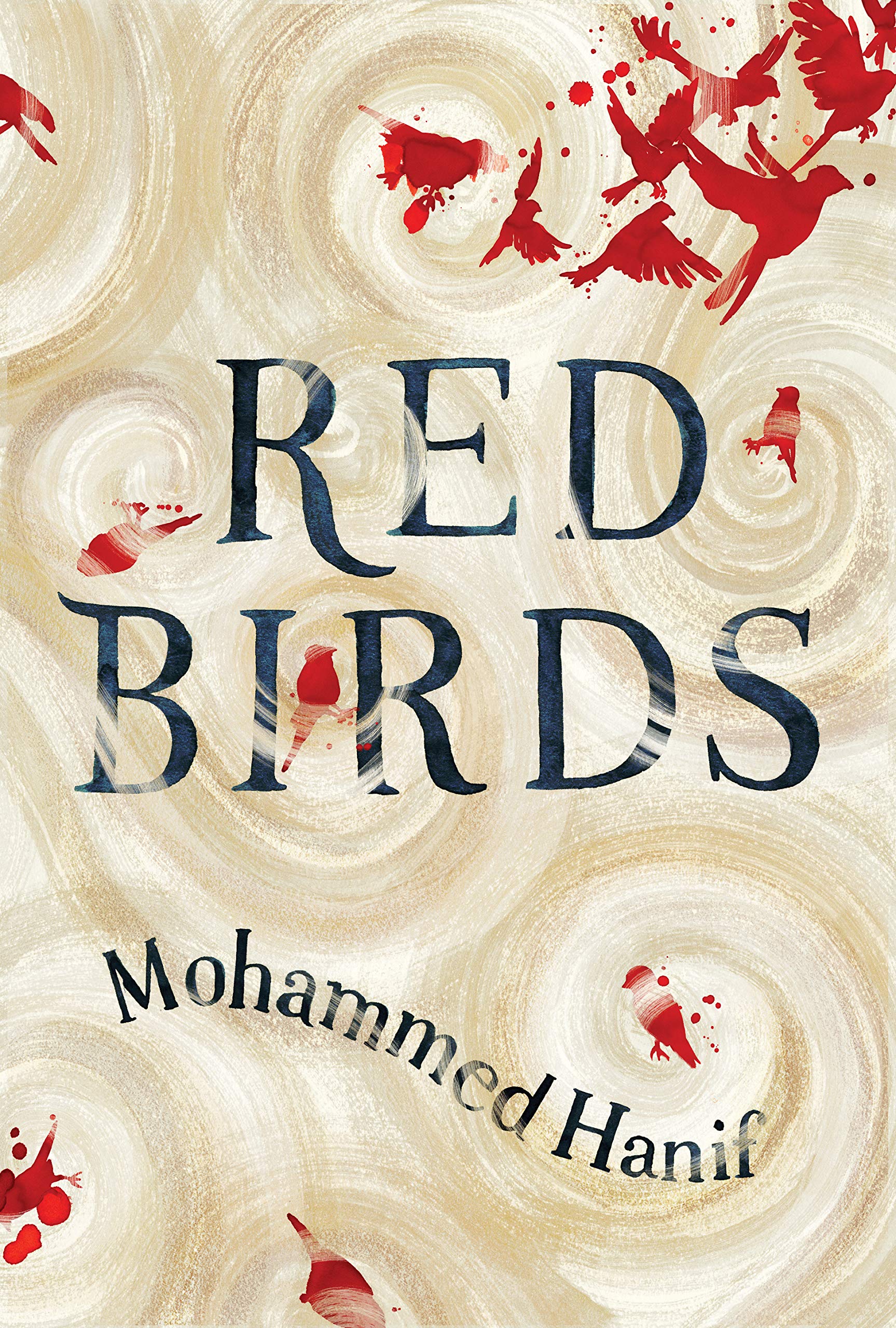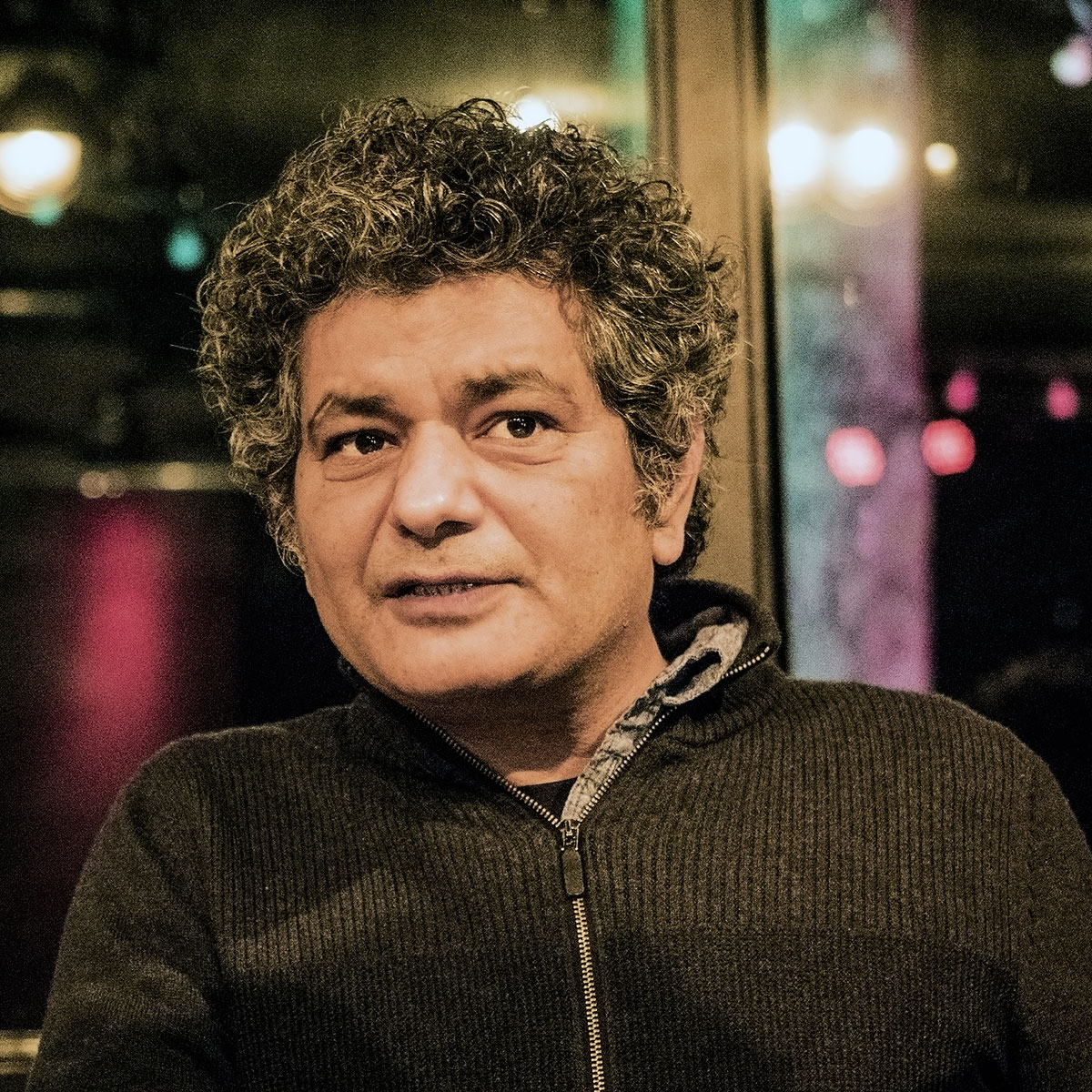Published May 12th, 2025
Review
by Seher Hashmi
Published in 2018 (Bloomsbury), Red Birds by Mohammed Hanif, an acclaimed British-Pakistani novelist, ushers in absurdism into the arena of postmodern literature in English. If it was possible for any novelist to spot a locus that makes you smile and sigh simultaneously in a mess proxy war leaves in its wake, it has to be Mohammed Hanif, whose debut A Case of Exploding Mangoes — winner of 2009 Commonwealth Book Prize in the Best First Book category — garnered worldwide accolades as a political satire.
Red Birds reinvigorates the theatre of the absurd, packing in a punch of broad band humor in the face of the foibles of proxy-war. Unearthing the story with as many as five perspectives in first person narrative, the novel reads like a stage play where various characters seem to be telling the story to the audience themselves.

His diction is spare; characters beggared i. e. nomads; a deserted Hanger and a desolate Camp form the backdrop of the story; the conflict is diminutive: how to get to the Hanger. In line with the stage plays of the absurdists Harold Pinter and Samuel Beckett, the scale of the entire action also remains grounded.
The novel introduces a teenager, Momo, who must bring back his Bro Ali who was sent to the Hanger where the US soldiers were deployed long ago. Several years have elapsed and the US troops have returned home; there lurk apparitions in the Hanger; Bro Ali is still missing. Momo must plan a mission to force entry into the Hanger and recover Bro Ali from the ghosts.
On his team, there is Dear Mother, his Mutt, an NGO worker and an American fighter pilot. Undoubtedly, the premise evokes the horrific scenario which unfolded after America’s departure from Iraq and Afghanistan. However, the lapse of time, cessation of active war and chaos create a window of an absurdist angle for the novelist.
Red Birds begins with a kinetic energy of an action thriller: with the crash of a fighter jet in the wilderness of the Camp. From there onwards, the action proceeds in a dramatic fashion, reserving just the right quantity of suspense for the readers to keep going on.
Winging on the theatre of the absurd, Hanif grafts in symbolism without veering away from the peculiar knack the author has for poking fun at the follies of the power elite.
The ghosts factor in Mohammed Hanif’s quirky improvisation of the genre of absurd coalescing liminality with postmodern realism. They loom larger than the titular symbol of red birds which forebodes agitation in the plot. The hovering ghosts of the US army and their local aide Bro Ali allude to the war crimes still haunting the people; its implication of the shell-shocked state of the victims and the soldiers is uncanny. Feeding into the idea of PTSD, they justify the hallucinatory condition that afflicts Momo and his family.
The first person narrator often breaks the fourth wall, transitioning reading into an immersive experience. This technique in tandem with the element of ghosts hammers on the whimsical mix-up of real and unreal in the Camp. The setting seems ripe for an unworldly twist.

In the first quarter of the 21st century, the world of English literature saw a resurgence of magical realism in fiction. Ushered in by Murakami, the element of the inexplicable pitches in doubt, impacting the reader with a fear of something that permeates all around, yet beyond us.
Contrarily, in Red Birds, the element of otherly existence flays this literary innovation of its illusive allure. Hanif picks up this figurative technique with his unique angle and explores its connotations to the advantage of weaving absurdism into the theme of Red Birds. Juxtaposed with Mohsin Hamid’s use of magical realism in Exit West, carrying insinuations that readers must look out for, Hanif doesn't seem to have any take on the future. He focuses solely on the bizarre minutiae, trailing a war waged due to the bloopers of on-ground reconnaissance, intel faux pas and inadvertent ejection from the million dollar jets. In Exit West, the motif of malleable doors and sudden emergence of humans flags premonition for the human condition. In contrast, Hanif’s mischievous lens captures the absurdity of the bombed and the bombers stranded on an ex-battlefield, which has downgraded both to the grubby level of survival at bare minimum. The notorious and the boastful, stripped off their identities, conflated as nomads. Both are ghosted.
Moreover, Hanif’s spin of this stylistic method layers the storyline with an abstract subtlety without violating the discipline of realism. Unlike magical realism, nothing fanciful or arcane is intended in the delineation of ghosts. The ghosts conjure up those details of the plot which are too literal and a part of everyday political discourse. While lending a figurative nuance, it also rescues the novel from becoming yet another book of political fiction.
Fictionalising a story based off real life events challenges the imagination of the writer because the graph of predictability is so high. Red Birds’ claim to fame stems from its innovative telling from the viewpoint of an absurdist. The bedraggled Camp — its geolocation unspecified — zooms in on the detritus of proxy-war left unattended: Momo and his family, and those American soldiers who died in the line of duty whose bodies couldn't be repatriated.
Momo, a teen man of his family, has a talking Mutt who contemplates aloud. Dear Mother is grief-stricken; Dear Father is crestfallen after the disappearance of their elder son Bro Ali. Ellie, the US fighter pilot crashlands after a botched mission; Lady Flowerbody, a European NGO worker, researches the “young Muslim mind” in this ransacked place. People in the Camp live off morsels given out by USAID. “This place is full of thieves.” Drawing on ancient lores, the dereliction of the Camp and Hanger gives credence to the appearance of beings not left human anymore. Their war-torn lives without basic amenities, compounded with a family rift engulfing the disappearance of Bro Ali, which everyone pins on Father, are enough to drive out sanity. In this scenario, the unsurprising lurking of ghosts among humans comes in handy to indicate how the boundary between rational and irrational, lucid and lunatic, has faded out.
The treatment of the unreal is fresh, not stock and aligns with Mohammed Hanif’s signature style offering humor on a wide spectrum. Unlike Kafka on The Shore and Killing Commendatore, the ghosts do not impact the story with an eerie sense of the inexplicable. Where others see apprehensions, Hanif discovers the contours of a LOL moment.
If Pakistan screwed Afghanistan and USA was the midwife you’d get a country called FAMILY
At the outset, the story progresses in a humorous vein touching on the ludicrous, the hilarious, offering jovial commentary, cheeky satire, punching up while not missing out on that self-deprecating absurd comedy that haphazardness of low life sources in. From the gradient of humor, the ghosts of the US army locked in an altercation with humans brings in the flavour of the slapstick. The Camp is such a terribly fucked-up place that even the ghosts of US combatants are in an impoverished state: Nobody is afraid of them. It becomes farcical when a fight ensues between ghosts and humans. Momo fires his Sweet 16 at nothing and all that Dear Mother needs to whoosh away the ghosts who, as the legend goes, are invincible is a handful of salt.
On another level, the ghosts are emblematic of the follies of war. Instead of romanticizing or offering escape into the unknown, Hanif has leveraged the magical realism to mock the foolishness in the grandiose. Momo and a few tramps at the Camp, cut off from civilization and living below the poverty line, are detected by Colonel Slater as potential threats to America. He even has a corroborating positive ID on those broke nomads. Their threat, according to his intel, is so immense and imminent that he spares no time in planning a mission or briefing his team and flies immediately to bomb them himself. How ludicrous that this recklessness costs him his life after he crashes his fighter jet and fails ejecting in time.
Similarly, Momo and his family, and a few locals, live life in awe of a vacant air traffic control facility, the Hanger, long abandoned by the US army. The ghosts in the Hanger haunt Momo and his family; the doctor and even the Mutt vouch for their existence. So apprehensive are they of these invisible creatures that they chalk out a military style plan of an armed assault on them. The action reaches a ludicrous height when a fight commences against an airy army and the most destructive weapon turns out to be salt lumps.
Following in the footsteps of the theatre of the absurd, the humor in Red Birds — the hallmark of the narrative — is not an exercise in facetious mockery of the warfare for stand-up like hilarity which waters down the tragic overtones of the tragedy. Red Birds aims for diffusion with a view to dispersing the impact. The reader’s take-home is a complex mix of sense of loss and a snarky reckoning of grotesque human condition with a mock smile when the denouement offers Dear Mother a closure in chanting the hundred names of Allah — a go-to Muslim practice for tackling all sorts of crises.
Nationality: Pakistani
First Language(s): Urdu, Punjabi
Second Language(s):
English
Supported by:

